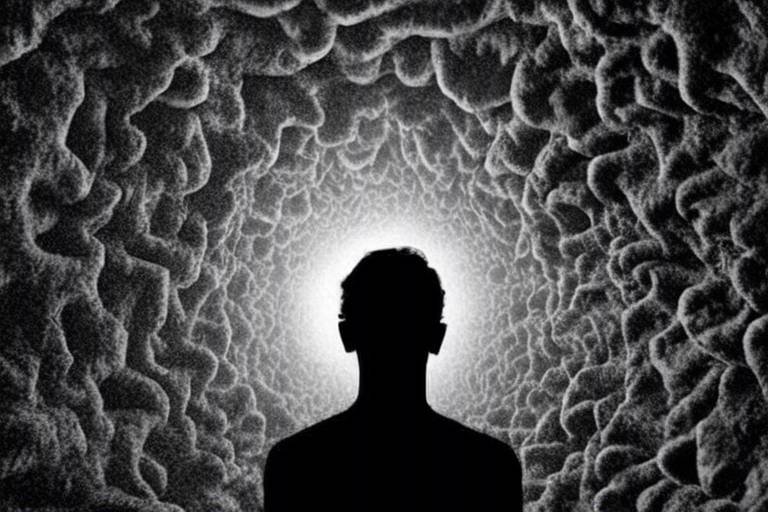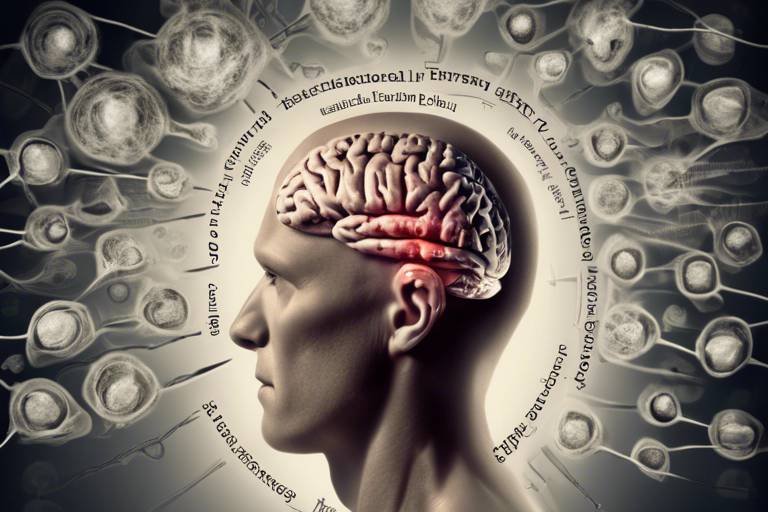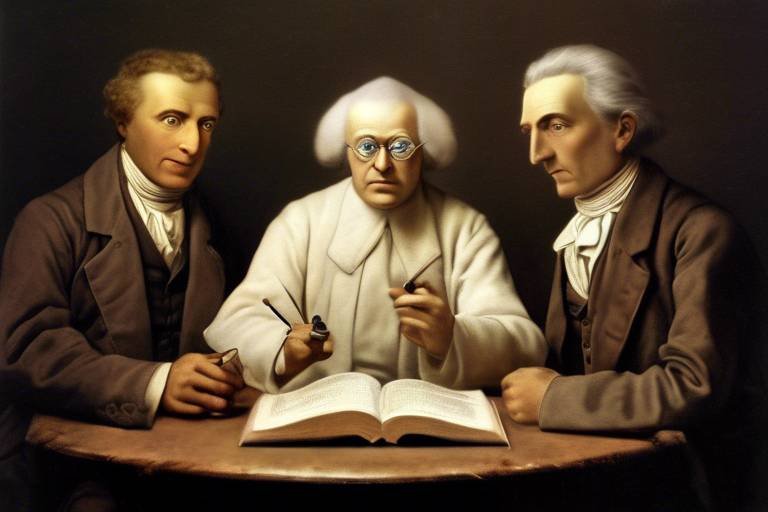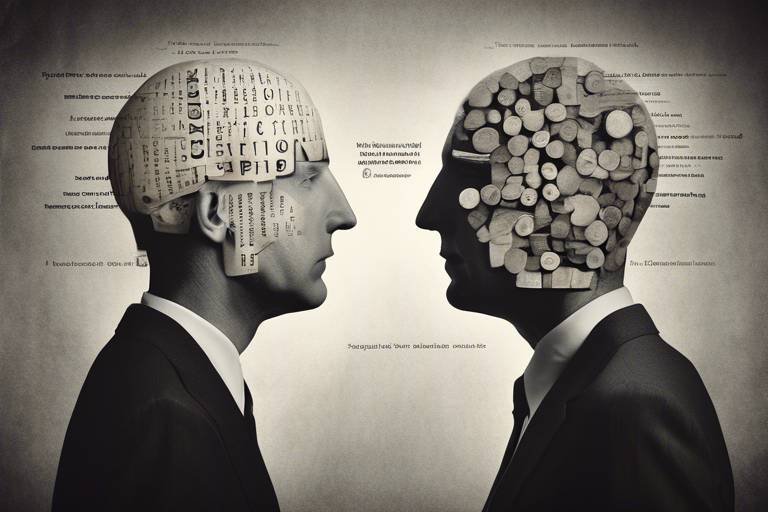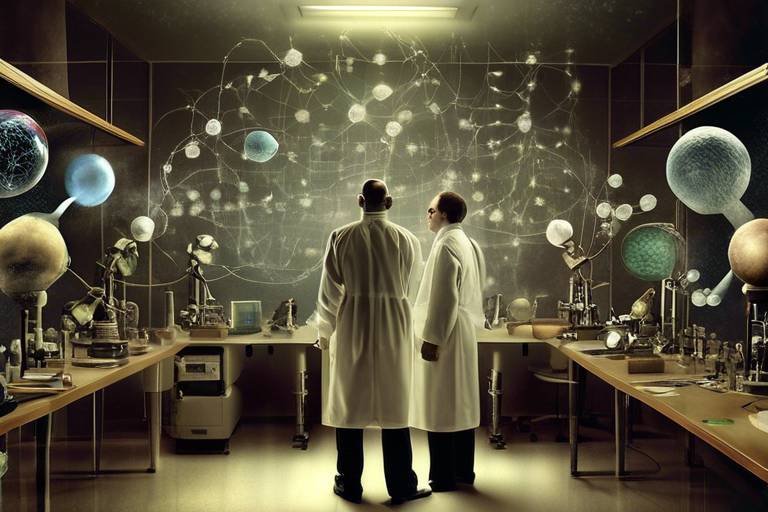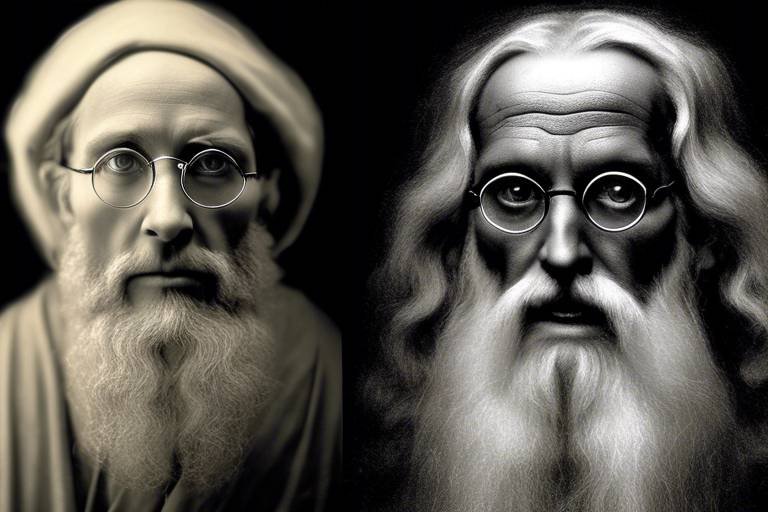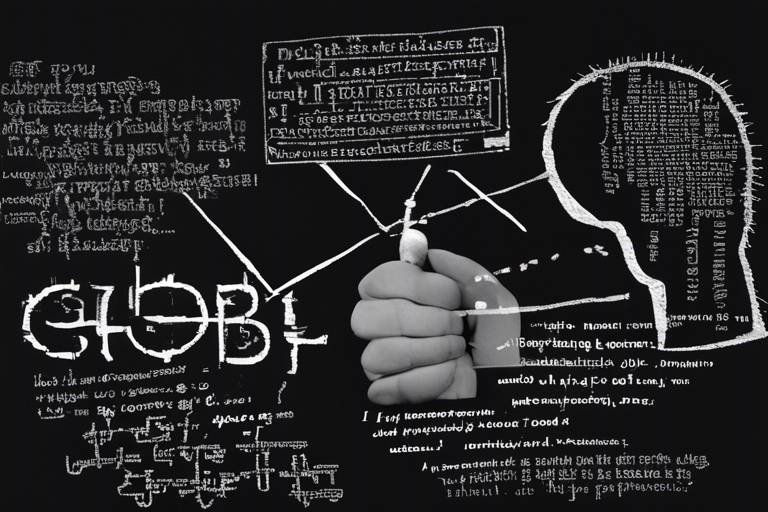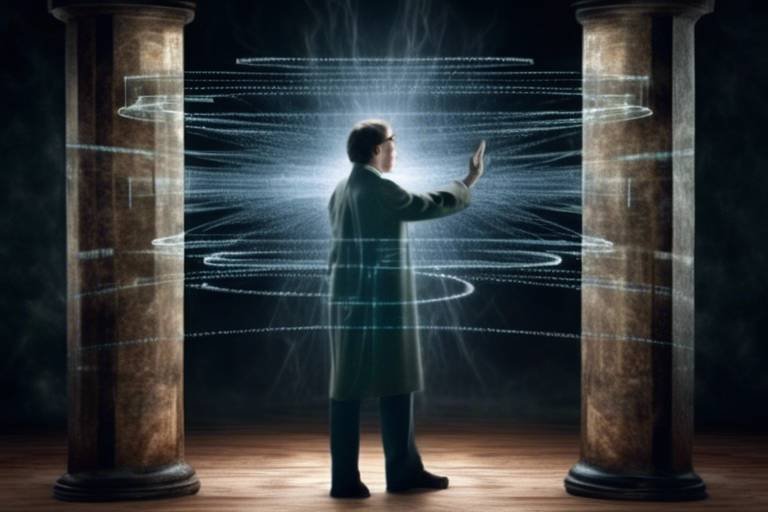Unraveling the Secrets of the Universe – the Physics and Metaphysics
Have you ever gazed up at the night sky, filled with countless stars, and wondered about the mysteries that lie beyond our understanding? The universe is a vast, intricate tapestry woven from the threads of physics and metaphysics. While physics provides us with the laws that govern the cosmos, metaphysics invites us to ponder the very nature of existence itself. Together, these fields create a fascinating dialogue that helps us unravel the secrets of reality.
At its core, the interplay between physics and metaphysics challenges us to think deeply about the world around us. Physics seeks to explain how things work—be it the motion of planets or the behavior of subatomic particles. Meanwhile, metaphysics dives into the philosophical implications of these findings, asking questions like: What does it mean to exist? Is there a purpose behind the chaos? As we embark on this journey, we will explore how these two realms complement each other, providing a more holistic understanding of the universe.
As we delve into this exploration, we'll touch on various themes, including the nature of reality, the role of physics, and the metaphysical perspectives that shape our understanding of existence. We'll also examine the intersection of science and spirituality, pondering how these seemingly disparate fields converge to answer the fundamental questions of our existence. So, buckle up as we embark on this enlightening adventure through the cosmos!
Reality is a complex concept that has puzzled philosophers and scientists alike for centuries. Is reality something that exists independently of our perception, or is it shaped by our experiences and beliefs? This debate often centers around two primary perspectives: objective and subjective. The objective view posits that reality exists outside of our consciousness, governed by universal laws that can be discovered through scientific inquiry. Conversely, the subjective perspective suggests that reality is a construct of our minds, influenced by personal experiences and interpretations.
These differing viewpoints significantly impact how we understand existence. For instance, if we accept an objective reality, we might pursue scientific knowledge with the belief that we can uncover universal truths. On the other hand, if we lean towards a subjective interpretation, we may prioritize personal experience and introspection as valid pathways to understanding the universe. Ultimately, both perspectives offer valuable insights, and the dialogue between them enriches our quest for knowledge.
Physics plays a crucial role in our comprehension of the universe. By uncovering the laws that govern natural phenomena, physics provides a framework for understanding everything from the smallest particles to the vastness of galaxies. The significance of both classical and modern physics cannot be overstated, as they have paved the way for countless discoveries that continue to shape our worldview.
Classical physics, rooted in the works of great minds like Isaac Newton, laid the groundwork for our understanding of motion and energy. Newton's laws of motion, for instance, describe the behavior of objects in our universe, providing a mathematical framework for predicting their movements. These laws are not just theoretical; they have practical applications that influence everything from engineering to space exploration.
Newton's laws of motion can be summarized as follows:
| Law | Description |
|---|---|
| First Law | An object at rest stays at rest, and an object in motion stays in motion unless acted upon by an external force. |
| Second Law | The acceleration of an object is directly proportional to the net force acting on it and inversely proportional to its mass. |
| Third Law | For every action, there is an equal and opposite reaction. |
These principles revolutionized scientific thought, illustrating how we can predict the behavior of objects in our universe. They serve as the foundation for countless advancements in technology and engineering.
Another critical aspect of classical physics is thermodynamics, which deals with heat, work, and energy transfer. The laws of thermodynamics provide insights into how energy flows in our universe, influencing everything from the behavior of engines to the evolution of stars. Understanding these laws not only helps us comprehend the workings of the physical world but also sheds light on the universe's fate, including concepts like entropy and the eventual heat death of the cosmos.
As we transitioned into the 20th century, the field of physics underwent a revolutionary transformation with the advent of modern physics. This new paradigm introduced groundbreaking theories like quantum mechanics and relativity, which challenged our traditional notions of space, time, and reality itself. Quantum mechanics, for instance, reveals a world where particles can exist in multiple states simultaneously, defying our everyday experiences and intuitions.
Relativity, on the other hand, reshaped our understanding of time and space, suggesting that they are not absolute but are intertwined and relative to the observer's frame of reference. These theories not only expanded our knowledge of the universe but also sparked philosophical debates about the nature of reality and our place within it.
While physics provides the laws of the universe, metaphysics delves into the philosophical implications of these laws. It invites us to explore profound concepts such as existence, causality, and the nature of consciousness. By contemplating these ideas, we can better understand the universe and our role within it.
What does it mean to be? This question lies at the heart of metaphysical discussions about existence. Different ontological theories offer various perspectives on what it means to exist, shaping our understanding of reality. Some theories propose that existence is a fundamental quality, while others argue that it is contingent upon perception and experience. Exploring these concepts can lead to profound insights about our own existence and the nature of the universe.
Another intriguing aspect of metaphysics is the exploration of causality and free will. If the universe operates under deterministic laws, does that mean our choices are predetermined? This question raises important philosophical implications about human agency and responsibility. Understanding the relationship between causality and free will can help us navigate the complexities of our own lives and the choices we make.
As we examine the convergence of scientific inquiry and spiritual beliefs, we uncover a rich tapestry of thought addressing the same fundamental questions about existence and the mysteries of the universe. Both realms, while seemingly distinct, share a common goal: to seek understanding and meaning in a complex world. This intersection opens up new avenues for exploration, inviting us to consider how science and spirituality can coexist and enrich our understanding of reality.
Looking ahead, the future of both physics and metaphysics is ripe with possibilities. Emerging theories and discoveries may reshape our understanding of the universe and our place within it. As we continue to explore the mysteries of existence, we may find ourselves on the brink of new revelations that challenge our current beliefs and expand our horizons.
- What is the difference between physics and metaphysics? Physics deals with the laws of nature and the physical universe, while metaphysics explores the fundamental nature of reality, existence, and consciousness.
- How do physics and metaphysics complement each other? Physics provides empirical evidence and frameworks for understanding the universe, while metaphysics offers philosophical insights that deepen our understanding of existence and reality.
- Can science and spirituality coexist? Yes, many believe that science and spirituality can coexist, as both seek to answer profound questions about existence and the universe.

The Nature of Reality
When we dive into the nature of reality, we find ourselves standing at the crossroads of philosophy and science, where questions about existence swirl around like leaves in a brisk autumn wind. What is real? Is it what we can touch, see, and measure, or is it something deeper, something that transcends our physical experience? These questions have puzzled thinkers for centuries, leading to a rich tapestry of interpretations that can be broadly categorized into objective and subjective perspectives.
Objective reality posits that there exists a world independent of our perceptions—a universe that operates under universal laws, whether we are here to observe it or not. This viewpoint aligns closely with the scientific method, which seeks to uncover truths through observation and experimentation. Imagine a vast, intricate clockwork mechanism, ticking away in perfect harmony, regardless of whether anyone is around to hear it. This is the essence of objective reality.
On the flip side, we have subjective reality, which suggests that our perceptions shape our understanding of existence. Think of it this way: two people can stand in the same room, witnessing the same event, yet their interpretations can diverge dramatically. One might see a beautiful sunset, while the other might feel a sense of melancholy. This perspective emphasizes the role of consciousness in constructing our realities, suggesting that our experiences are as unique as our fingerprints.
These differing views do not exist in isolation. Instead, they intertwine, influencing how we engage with the universe around us. For instance, consider the implications of each perspective:
- Objective Reality: Encourages scientific exploration, leading to advancements in technology and understanding.
- Subjective Reality: Promotes personal growth, emotional intelligence, and a deeper connection to our experiences.
As we navigate these philosophical waters, we must also consider the implications of our beliefs about reality. How do our views shape our actions and interactions with others? If we believe in a rigid, unchanging reality, we may become resistant to change, stuck in our ways. Conversely, a belief in a fluid, subjective reality might empower us to embrace new experiences and perspectives, fostering growth and adaptability.
Ultimately, the nature of reality is a complex interplay of both objective and subjective elements. The challenge lies in finding a balance between the two, allowing us to appreciate the universe's vastness while also recognizing the intimate, personal nature of our experiences. In this dance between the tangible and the intangible, we may discover not just what it means to exist, but also how we fit into the grand tapestry of the cosmos.
As we ponder these profound questions, it becomes clear that the nature of reality is not just an abstract philosophical exercise. It shapes our everyday lives, influencing our relationships, our decisions, and our understanding of our place in the universe. So, the next time you gaze up at the stars or ponder your existence, remember that you are part of a grand narrative that intertwines physics, metaphysics, and the very essence of being.
- What is the difference between objective and subjective reality?
Objective reality refers to a world that exists independently of our perceptions, while subjective reality is shaped by individual experiences and interpretations. - How do our beliefs about reality influence our lives?
Our beliefs can shape our actions, relationships, and overall worldview, impacting how we respond to challenges and opportunities. - Can both objective and subjective realities coexist?
Yes, they can coexist and often do, as our understanding of the universe is influenced by both measurable phenomena and personal experiences.

The Role of Physics
Physics is often regarded as the cornerstone of our understanding of the universe. It serves as the bridge between the tangible world we experience daily and the abstract concepts that govern the cosmos. Through rigorous experimentation and mathematical modeling, physics unveils the universal laws that dictate everything from the motion of planets to the behavior of subatomic particles. But what does this really mean for us? How do these laws translate into the fabric of our everyday lives? To answer these questions, we must explore the profound significance of both classical and modern physics in unraveling the mysteries of the universe.
Classical physics, the foundation upon which much of modern science is built, includes the principles that govern motion and energy. Think of it as the playbook for understanding how things move and interact in our world. At the heart of classical physics lie Newton's laws of motion, which describe how objects behave under various forces. These laws not only revolutionized scientific thought but also laid the groundwork for countless technological advancements. Imagine trying to understand a game of soccer without knowing the rules—Newton's laws provide those essential guidelines for the physical universe.
Newton's laws of motion can be summarized as follows:
- First Law (Inertia): An object at rest stays at rest, and an object in motion stays in motion unless acted upon by a net external force.
- Second Law (Fma): The acceleration of an object is directly proportional to the net force acting on it and inversely proportional to its mass.
- Third Law (Action-Reaction): For every action, there is an equal and opposite reaction.
These principles not only explain the motion of everyday objects but also provide insights into the dynamics of celestial bodies. They have been instrumental in fields ranging from engineering to astronomy, allowing us to launch spacecraft and predict the orbits of planets with remarkable precision.
Another critical aspect of classical physics is thermodynamics, which deals with heat, work, and energy transfer. The laws of thermodynamics can be summarized as follows:
| Law | Description |
|---|---|
| First Law | Energy cannot be created or destroyed, only transformed from one form to another. |
| Second Law | In any energy transfer, the total entropy (disorder) of an isolated system can only increase. |
| Third Law | As temperature approaches absolute zero, the entropy of a perfect crystal approaches a constant minimum. |
These laws have profound implications for understanding everything from the efficiency of engines to the ultimate fate of the universe. They help us comprehend how energy flows and transforms, shaping the very essence of existence.
While classical physics provides a solid framework, modern physics takes us into realms that challenge our intuitive understanding of reality. Quantum mechanics and relativity are two pillars of modern physics that have reshaped our perception of time, space, and matter. Quantum mechanics reveals a world where particles can exist in multiple states simultaneously, and their behavior is inherently probabilistic. This is akin to flipping a coin and not being able to predict whether it will land heads or tails until you observe it. On the other hand, Einstein's theory of relativity unravels the fabric of spacetime, demonstrating that time is not a constant but can be affected by speed and gravity.
In conclusion, the role of physics in our understanding of the universe is both profound and multifaceted. From the classical laws that govern everyday phenomena to the groundbreaking theories that redefine our understanding of reality, physics provides the tools necessary to explore the cosmos and our place within it. As we continue to delve deeper into the mysteries of existence, physics will undoubtedly remain a guiding light, illuminating the path toward greater knowledge and understanding.
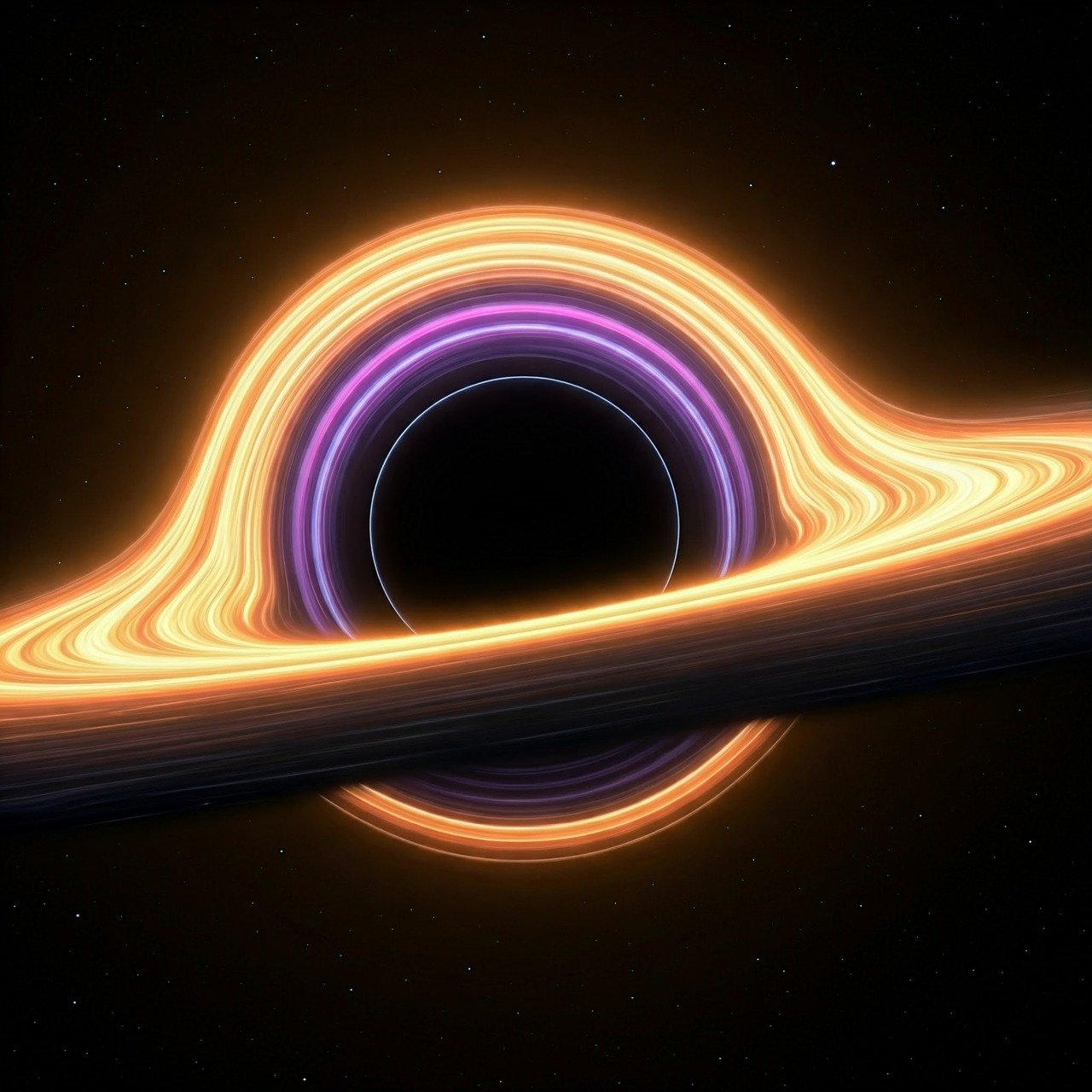
Classical Physics
When we talk about , we're diving into the foundational principles that have shaped our understanding of the universe for centuries. Imagine standing on the shoulders of giants like Isaac Newton and James Clerk Maxwell, gazing out over the vast landscape of motion, forces, and energy. Classical physics is like the bedrock of a grand building, where every brick is meticulously placed to create a solid structure that supports everything that comes after it. At its core, classical physics deals with the laws governing the motion of objects and the forces that act upon them, setting the stage for the more complex ideas that modern physics would later introduce.
One of the most significant contributions of classical physics is encapsulated in Newton's Laws of Motion. These three laws are not just rules; they are a lens through which we can view the world. They explain how objects behave when subjected to various forces and have paved the way for countless innovations in engineering and technology. For instance, the first law, often called the law of inertia, tells us that an object at rest will stay at rest unless acted upon by an external force. This principle can be likened to a car idling at a stoplight; it won't move until the driver presses the gas pedal. Similarly, the second law quantifies the relationship between force, mass, and acceleration, while the third law introduces the concept of action and reaction, a dance of forces that governs interactions.
In addition to Newton's laws, the field of thermodynamics plays a crucial role in classical physics. Thermodynamics is the study of heat, work, and energy transfer, and it provides insights into how energy flows through systems, be they mechanical engines or even the universe itself. The laws of thermodynamics can be summarized as follows:
| Law | Description |
|---|---|
| First Law | Energy cannot be created or destroyed, only transformed from one form to another. |
| Second Law | In any energy transfer, there will always be some energy that is lost as heat, leading to increased entropy. |
| Third Law | As temperature approaches absolute zero, the entropy of a perfect crystal approaches zero. |
These laws not only explain the workings of engines and refrigerators but also provide a framework for understanding the evolution of the universe itself. Imagine the universe as a grand stage where energy plays the lead role, transitioning from one form to another, creating the spectacular show of existence that we observe. The implications of thermodynamics extend beyond mere machines; they touch on the very fabric of reality, influencing everything from the lifecycle of stars to the processes that sustain life on Earth.
In summary, classical physics is the cornerstone of our understanding of the physical world. It provides essential insights into motion and energy, and its principles continue to resonate through modern scientific inquiry. As we explore the universe's mysteries, we carry with us the lessons learned from classical physics, making it an indispensable part of our quest for knowledge.

Newtonian Mechanics
Newtonian mechanics, named after the brilliant Sir Isaac Newton, forms the bedrock of classical physics and has profoundly shaped our understanding of motion and forces. Imagine for a moment that you're watching a game of soccer. Each player moves across the field, responding to the ball, the wind, and each other. Newton's laws of motion help us make sense of this dynamic interaction, providing a framework to predict how objects will move under various forces. These laws are not just abstract concepts; they apply to everything from a falling apple to the orbit of planets!
The first law, often called the law of inertia, tells us that an object at rest stays at rest, and an object in motion continues in motion at a constant velocity unless acted upon by a net external force. This principle is crucial for understanding why a soccer ball won't move until a player kicks it. Similarly, in space, a satellite will keep orbiting the Earth unless gravitational forces or other influences intervene.
Next, we have the second law, which introduces the relationship between force, mass, and acceleration. It's expressed in the equation F ma, where F is the force applied, m is the mass of the object, and a is the acceleration produced. This law explains why heavier objects require more force to move. Think about trying to push a car versus a bicycle; the car's mass demands significantly more effort to achieve the same acceleration!
Lastly, Newton's third law states that for every action, there is an equal and opposite reaction. This principle is evident when you jump off a small boat: as you leap forward, the boat moves backward. It's a beautiful dance of forces that illustrates the interconnectedness of motion in our universe.
To further illustrate these concepts, let’s look at a simple table summarizing Newton's three laws of motion:
| Law | Description | Example |
|---|---|---|
| First Law | An object at rest stays at rest, and an object in motion stays in motion unless acted upon by a net external force. | A soccer ball remains stationary until kicked. |
| Second Law | The acceleration of an object is directly proportional to the net force acting on it and inversely proportional to its mass. | Pushing a car requires more force than pushing a bicycle. |
| Third Law | For every action, there is an equal and opposite reaction. | Jumping off a boat causes the boat to move backward. |
Newtonian mechanics not only revolutionized physics but also laid the groundwork for countless applications in engineering, astronomy, and beyond. From predicting the trajectory of a rocket to designing safe vehicles, the principles of Newton's laws are embedded in the very fabric of our technological advances. They offer a glimpse into the predictable nature of the universe, where despite its complexities, certain rules remain steadfast. So, the next time you witness a ball soaring through the air or a car speeding down the road, remember that Newton's insights are at play, guiding their every move!
- What are Newton's three laws of motion?
Newton's three laws describe how objects move and interact with forces: 1) An object in motion stays in motion unless acted upon, 2) Force equals mass times acceleration, and 3) For every action, there is an equal and opposite reaction. - How does Newtonian mechanics apply to everyday life?
Newtonian mechanics helps us understand everyday activities, like driving a car, playing sports, or even walking. It explains how forces affect motion in practical scenarios. - Are there limitations to Newtonian mechanics?
Yes, Newtonian mechanics is not applicable at very high speeds (close to the speed of light) or at very small scales (atomic and subatomic levels), where quantum mechanics and relativity take over.

Thermodynamics
When we talk about , we're diving into a fascinating realm of physics that governs how energy moves and transforms. Imagine the universe as a grand stage, where every actor is a particle, and thermodynamics is the script that dictates their interactions. This field is not just about heat and energy; it’s about understanding the fundamental principles that shape our reality. At its core, thermodynamics is built upon four essential laws, each unraveling a layer of complexity in the way energy behaves in our universe.
The First Law of Thermodynamics states that energy cannot be created or destroyed, only transformed from one form to another. This principle is akin to a magician who can change a rabbit into a hat, but the rabbit never truly disappears. For instance, when you heat water on the stove, the electrical energy from the stove is transformed into thermal energy, raising the water's temperature. This law lays the foundation for many scientific and engineering disciplines, emphasizing the conservation of energy in all processes.
Next, we have the Second Law of Thermodynamics, which introduces the concept of entropy—a measure of disorder in a system. Picture your room after a wild party: the more people that come in, the messier it gets, right? Similarly, in any energy transfer, some energy becomes unusable, leading to an increase in entropy. This law implies that natural processes tend to move towards a state of greater disorder, which has profound implications for everything from the efficiency of engines to the fate of the universe itself.
The Third Law of Thermodynamics takes us to the extreme: it states that as the temperature of a system approaches absolute zero, the entropy approaches a minimum. Imagine a world where everything is frozen in time, where particles are so still that they barely exist. This law helps us understand the behavior of materials at very low temperatures and is crucial for fields like cryogenics and superconductivity.
Lastly, the Zeroth Law of Thermodynamics might seem like an afterthought, but it’s essential for defining temperature. It states that if two systems are each in thermal equilibrium with a third system, then they are in thermal equilibrium with each other. This law is the reason why thermometers work: they allow us to measure the temperature of an object by comparing it to a standard.
In summary, thermodynamics is a powerful framework that not only explains how energy works but also connects deeply with the very fabric of our universe. It influences everything from the engines that power our cars to the processes that govern stellar evolution. Understanding these laws gives us a glimpse into the intricate dance of energy and matter, revealing the underlying order in what might initially appear chaotic.
- What is thermodynamics?
Thermodynamics is the branch of physics that deals with heat, work, temperature, and energy transfer, and how these concepts relate to the physical properties of matter.
- What are the four laws of thermodynamics?
The four laws include the Zeroth, First, Second, and Third Laws, each describing different aspects of energy transfer and entropy in systems.
- How does thermodynamics apply to everyday life?
Thermodynamics explains the functioning of refrigerators, air conditioners, engines, and even biological processes like metabolism.
- Why is entropy important?
Entropy is a measure of disorder and helps us understand the direction of spontaneous processes and the efficiency of energy systems.

Modern Physics
Modern physics represents a significant leap from the classical understanding of the universe, introducing concepts that challenge our intuitive grasp of reality. At the heart of modern physics are two groundbreaking theories: quantum mechanics and the theory of relativity. These theories not only revolutionized our understanding of the physical world but also raised profound questions about the nature of existence itself. Have you ever wondered how the universe can be both a vast, orderly system and a chaotic, unpredictable realm? This duality is precisely what modern physics seeks to unravel.
Quantum mechanics, for instance, introduces the idea that particles can exist in multiple states simultaneously, a phenomenon known as superposition. Imagine flipping a coin and it spinning in the air; while it spins, it’s both heads and tails until you catch it. Similarly, particles exist in a state of potential until observed. This leads to the intriguing concept of entanglement, where particles become interconnected in such a way that the state of one instantly influences the state of another, regardless of the distance separating them. This challenges our traditional notions of locality and causality, making us rethink the very fabric of reality.
On the other hand, Einstein’s theory of relativity transformed our understanding of space and time. According to this theory, time is not a constant; it can stretch and compress depending on the speed at which an object is moving. Think of it like a rubber band: the faster you move, the more it stretches, altering your perception of time. This leads to fascinating consequences, such as time dilation, where time passes at different rates for observers in different frames of reference. It’s as if the universe has its own set of rules that defy common sense!
Modern physics also dives into the enigmatic world of black holes and the nature of the universe itself. Black holes, once mere theoretical constructs, have been observed, revealing their incredible gravitational pull that can warp space and time around them. The idea that information can be lost in a black hole raises critical questions about the nature of reality and the laws of physics. Are we merely observers in a universe governed by unpredictable forces, or is there a deeper order waiting to be discovered?
As we venture further into the realms of modern physics, we find ourselves at the intersection of science and philosophy. The implications of quantum mechanics and relativity extend beyond mere equations; they force us to confront the fundamental questions of existence. What does it mean to exist in a universe where the rules seem to bend and twist? How do we reconcile our everyday experiences with the bizarre realities described by physicists? This is where the beauty of modern physics lies, in its ability to provoke thought and inspire curiosity about the universe we inhabit.
| Concept | Description |
|---|---|
| Quantum Mechanics | A branch of physics that studies the behavior of matter and energy at the smallest scales, where classical physics fails. |
| Relativity | Einstein's theory describing the relationship between space, time, and gravity, revolutionizing our understanding of the universe. |
| Superposition | The principle that a quantum system can exist in multiple states at once until measured. |
| Entanglement | A phenomenon where particles become linked, such that the state of one immediately influences the state of another. |
| Time Dilation | The effect of time passing at different rates for observers in different frames of reference. |
In summary, modern physics is not just a collection of theories and equations; it is a profound exploration of the universe that challenges our understanding of reality. As we delve deeper into its mysteries, we are reminded that the more we learn, the more questions arise. What lies ahead in our quest for knowledge? Only time will tell.
- What is the difference between classical physics and modern physics? Classical physics deals with macroscopic phenomena and is based on laws like Newton's laws of motion, while modern physics includes quantum mechanics and relativity, addressing phenomena at atomic and cosmic scales.
- How does quantum mechanics affect our daily lives? While quantum mechanics may seem abstract, it underpins technologies such as semiconductors, lasers, and even MRI machines, influencing many aspects of modern life.
- Can we observe quantum entanglement? Yes, entanglement has been experimentally verified, and its implications are being explored for applications in quantum computing and secure communication.
- What are black holes? Black holes are regions in space where gravity is so strong that nothing, not even light, can escape from them, leading to fascinating questions about the nature of time and space.

Metaphysical Perspectives
When we dive into the realm of metaphysics, we find ourselves navigating through profound questions that challenge our understanding of existence. Metaphysics is not just an abstract field; it's the philosophical backbone that supports our interpretations of reality. It prompts us to ponder: What does it truly mean to exist? Are we mere byproducts of a physical universe, or is there something more profound at play? These questions are not just academic; they resonate deeply within our daily lives and experiences.
One of the most intriguing aspects of metaphysics is its exploration of existence and being. Philosophers have long debated the nature of being, proposing various ontological theories that shape our perception of reality. For instance, some argue that existence is a fundamental trait of all entities, while others suggest that existence is contingent upon perception. This leads us to consider the implications of these theories on our understanding of ourselves and the universe. If existence is subjective, then does reality shift based on individual perspectives? Or is there an objective reality that transcends our perceptions?
Another captivating area of metaphysical inquiry is causality and free will. The question of whether our actions are predetermined or if we possess genuine free will has sparked endless debate. Imagine a world where every decision is preordained, like a script unfolding in a play. Would we still feel accountable for our choices? This dilemma challenges our understanding of human agency and responsibility. If the universe operates on strict laws of cause and effect, where does that leave our sense of autonomy? The interplay between determinism and free will remains a hotbed of philosophical discussion, influencing not only metaphysics but also ethics and psychology.
To grasp the full scope of metaphysical perspectives, it's essential to recognize how they interact with the findings of physics. While physics provides us with the tools to understand the mechanics of the universe, metaphysics delves into the why behind those mechanics. For instance, when physicists explore the fabric of spacetime or the intricacies of quantum mechanics, metaphysical questions about the nature of reality inevitably arise. Are we living in a multiverse, or is our universe the only one? What does it mean for something to exist in multiple states simultaneously? These inquiries blur the lines between science and philosophy, creating a rich tapestry of thought that fuels both disciplines.
In conclusion, metaphysical perspectives offer a vital lens through which we can examine the universe and our place within it. By contemplating existence, causality, and the nature of consciousness, we not only enrich our understanding of reality but also engage in the timeless quest for knowledge that defines the human experience. The intersection of metaphysics and physics invites us to keep questioning, keep exploring, and ultimately, keep seeking the answers that lie beyond the veil of our current understanding.
- What is metaphysics? Metaphysics is a branch of philosophy that explores the fundamental nature of reality, including concepts like existence, being, causality, and the nature of objects.
- How does metaphysics relate to physics? While physics focuses on the mechanics of the universe, metaphysics seeks to understand the underlying principles and meanings behind those mechanics.
- What are some key questions in metaphysics? Key questions include: What does it mean to exist? Is free will an illusion? What is the nature of consciousness?
- Can metaphysical questions be answered? Many metaphysical questions remain open to interpretation and debate, as they often delve into subjective experiences and philosophical theories.

Existence and Being
The concept of existence is one of the most profound questions in both philosophy and metaphysics. What does it truly mean to "be"? This question has puzzled thinkers for centuries, and it invites us to explore the very fabric of reality. Imagine standing on the edge of a vast ocean of thought, where each wave represents a different theory about existence. Some waves crash with the force of realism, asserting that objects exist independently of our perceptions, while others gently lap at the shore, echoing the sentiments of idealism, which posits that reality is fundamentally shaped by our minds.
At the heart of these discussions lies the idea of ontology, the study of being. Ontological theories attempt to categorize and explain the different ways in which things exist. For instance, consider the distinction between concrete entities, like a rock or a tree, and abstract concepts, such as numbers or love. Each has its own mode of existence, and this divergence raises questions about the nature of reality itself. Are abstract objects just figments of our imagination, or do they hold a form of existence that is just as valid as physical entities?
Furthermore, the implications of these ontological theories extend beyond mere academic curiosity. They shape our perception of reality and influence how we interact with the world. For example, if one subscribes to a materialistic view, they may prioritize physical achievements and tangible success. In contrast, those who lean towards a more spiritual or existential perspective might focus on personal growth and inner fulfillment. This divergence in thought can lead to vastly different life choices and societal values.
To illustrate these concepts further, let's consider a table that summarizes some key ontological theories:
| Ontology Type | Description | Key Thinkers |
|---|---|---|
| Realism | Belief that objects exist independently of our perception. | Aristotle, Bertrand Russell |
| Idealism | Reality is mentally constructed or immaterial. | Plato, George Berkeley |
| Existentialism | Emphasizes individual existence and personal responsibility. | Jean-Paul Sartre, Simone de Beauvoir |
| Phenomenology | Focus on subjective experience and consciousness. | Edmund Husserl, Martin Heidegger |
As we delve deeper into the nature of existence, we encounter another layer of complexity: the relationship between existence and consciousness. What role does consciousness play in defining what it means to be? Some philosophers argue that consciousness is a fundamental aspect of reality, suggesting that our awareness shapes the world around us. This leads to intriguing questions about the nature of self and identity. Are we merely observers in a vast universe, or do we actively participate in its creation?
Ultimately, the exploration of existence and being is not just an intellectual exercise; it is a journey into the depths of our own understanding. Each perspective offers a unique lens through which to view the universe, inviting us to challenge our assumptions and broaden our horizons. As we ponder these questions, we find ourselves at the intersection of thought and experience, where the mysteries of existence beckon us to dive deeper into the ocean of reality.
- What is the difference between existence and being? Existence refers to the state of being present or having reality, while being encompasses the essence or nature of that existence.
- How do ontological theories impact our daily lives? Ontological theories influence our beliefs and values, shaping how we perceive success, relationships, and our place in the universe.
- Can consciousness exist without a physical body? This is a debated topic; some argue that consciousness is a product of the brain, while others believe it can exist independently.

be
Delving into philosophical questions, this section discusses various interpretations of reality, including objective vs. subjective perspectives, and how these views shape our understanding of existence.
This section highlights the significance of physics in uncovering universal laws, emphasizing the contributions of classical and modern physics in explaining natural phenomena and the cosmos.
Exploring the principles of classical mechanics, this subsection illustrates how Newton's laws and thermodynamics laid the groundwork for understanding motion and energy in the universe.
An examination of Newton's laws of motion, detailing their impact on scientific thought and how they describe the behavior of objects in our universe.
This part covers the laws of thermodynamics and their implications for energy transfer and the evolution of the universe, providing insights into heat, work, and entropy.
Focusing on the advancements in physics, this subsection discusses quantum mechanics and relativity, revealing how they challenge traditional notions of space, time, and reality.
This section investigates how metaphysics complements physics, exploring concepts such as existence, causality, and the nature of consciousness, and how these ideas influence our understanding of the universe.
A deep dive into metaphysical discussions about existence, this subsection examines what it means to and the implications of different ontological theories on our perception of reality. The question of what it means to is not just a philosophical inquiry; it is a profound exploration of our very essence. When we ponder our existence, we often grapple with concepts that stretch beyond the physical realm. Are we merely biological entities, or is there something deeper that defines our being? This inquiry leads us to various ontological theories that attempt to categorize and explain existence.
For instance, consider the distinction between materialism and idealism. Materialism posits that only physical matter is real, while idealism suggests that reality is fundamentally mental or spiritual. This dichotomy raises intriguing questions:
- Is our consciousness merely a byproduct of brain activity?
- Or does consciousness play a crucial role in shaping reality?
These questions not only challenge our understanding of existence but also influence our interpretation of reality itself. Furthermore, the implications of these theories ripple through various disciplines, from psychology to physics, as they attempt to answer the age-old question of what it truly means to .
This part explores the philosophical implications of causality, questioning whether free will exists within a deterministic universe and how this affects our understanding of human agency.
Examining the convergence of scientific inquiry and spiritual beliefs, this section discusses how both realms address the same fundamental questions about existence and the universe's mysteries.
This concluding section speculates on the future of both fields, considering how emerging theories and discoveries may reshape our understanding of the universe and our place within it.
Q: What is the difference between physics and metaphysics?
A: Physics is the natural science that studies matter, energy, and the fundamental forces of nature, while metaphysics explores the fundamental nature of reality, existence, and the relationship between mind and matter.
Q: Can metaphysics provide answers to scientific questions?
A: While metaphysics cannot provide empirical answers like science, it can offer philosophical frameworks that help interpret scientific findings and address questions about existence and consciousness.
Q: How do physics and metaphysics intersect?
A: Both fields seek to understand the nature of reality, but they approach it from different angles. Physics relies on empirical evidence and experimentation, while metaphysics delves into abstract concepts and philosophical inquiry.

and the implications of different ontological theories on our perception of reality.
When we dive into the deep waters of metaphysics, we find ourselves grappling with the very essence of existence and what it means to be. Ontological theories play a pivotal role in shaping our understanding of reality, providing frameworks that help us interpret our experiences and the world around us. Imagine standing at the edge of a vast ocean, where each wave represents a different perspective on existence—some waves crash violently against the shore, while others gently lap at your feet. This diversity of thought reflects the myriad ways we can view reality.
One of the fundamental questions in ontology is whether reality is objective or subjective. Objective reality suggests that there is a world independent of our perceptions—a universe governed by laws that exist regardless of our awareness. On the other hand, subjective reality posits that our experiences and perceptions shape the world we inhabit. This dichotomy leads us to ponder the implications of various ontological theories:
| Ontological Theory | Description | Implications for Reality |
|---|---|---|
| Realism | The belief that a reality exists independently of our perceptions. | Supports the idea of universal truths and laws. |
| Idealism | Reality is mentally constructed or immaterial. | Challenges the notion of an objective world, suggesting that perception shapes reality. |
| Phenomenology | Focuses on individual experiences and consciousness. | Emphasizes the importance of subjective experience in understanding reality. |
| Existentialism | Stresses individual existence, freedom, and choice. | Highlights the role of personal agency in creating one's reality. |
These theories not only inform academic discourse but also resonate with our everyday lives. For instance, if you subscribe to realism, you might find comfort in the idea that there are truths about the universe that remain constant, regardless of human perception. Conversely, if you lean towards idealism, your understanding of reality may be more fluid, shaped by personal experiences and emotions. This can lead to a more subjective interpretation of events, where your feelings and thoughts significantly influence your understanding of the world.
Moreover, the implications of these ontological theories extend beyond mere philosophical debate; they impact our behavior, relationships, and even our mental health. For example, an existentialist perspective may encourage individuals to take responsibility for their choices, fostering a sense of empowerment. In contrast, a deterministic view could lead to feelings of helplessness, as one might believe that their actions are merely the result of pre-existing conditions.
Ultimately, engaging with these ontological questions allows us to better understand our place in the universe. Each theory offers a unique lens through which we can examine our existence, prompting us to reflect on our beliefs, values, and the nature of reality itself. So, as we navigate the complexities of life, it's essential to recognize that our perception of reality is not merely a passive experience; it is an active engagement with the world around us, shaped by our understanding of existence.
- What is ontology? - Ontology is a branch of metaphysics concerned with the nature of being, existence, and reality.
- How do ontological theories influence our understanding of reality? - Different ontological theories provide frameworks that shape our perceptions and interpretations of the world, affecting how we understand existence.
- Can subjective experiences be considered valid in understanding reality? - Yes, subjective experiences are crucial as they inform individual perspectives and contribute to our overall understanding of existence.
- What is the difference between objective and subjective reality? - Objective reality exists independently of personal perceptions, while subjective reality is shaped by individual experiences and interpretations.

Causality and Free Will
The relationship between causality and free will has perplexed philosophers, scientists, and thinkers for centuries. At its core, causality refers to the principle that every effect has a cause, creating a chain of events that shapes our reality. But what happens when we introduce the concept of free will into this equation? Can we truly claim to be the architects of our own destinies if every action we take is merely a response to preceding causes? This question invites us to explore the intricate dance between determinism and autonomy.
Imagine for a moment that life is like a grand chess game. Each move you make is influenced by the previous moves of your opponent. In this analogy, your choices seem to be dictated by the state of the board at any given moment. But what if you could step back and see the entire game from a bird’s eye view? Would you then feel that your moves are predetermined, or would you still believe in your ability to choose your path? This metaphor illustrates the tension between the deterministic view of the universe and the belief in free will.
To better understand this relationship, let’s consider two primary perspectives:
- Determinism: This viewpoint posits that all events, including human actions, are determined by preceding events in accordance with the natural laws of the universe. If everything is predetermined, then free will is merely an illusion.
- Libertarian Free Will: In contrast, this perspective argues that individuals possess the capacity to make choices that are not solely determined by past events. This belief supports the idea that humans can act independently of external influences.
The debate intensifies when we consider the implications of each perspective. If determinism holds true, it raises significant questions about responsibility and morality. If our actions are preordained, can we be held accountable for our choices? Conversely, if we embrace the idea of free will, we must grapple with the challenge of reconciling it with the observable patterns of cause and effect that govern our universe.
Furthermore, the emergence of quantum mechanics introduces a layer of complexity to this discussion. Quantum theory suggests that at subatomic levels, events can occur without clear causation, leading some to argue that this randomness opens the door for free will. However, does randomness equate to freedom? Or does it simply replace one form of determinism with another? These questions continue to fuel debates among physicists and philosophers alike.
As we navigate this intricate landscape, it becomes evident that the intersection of causality and free will is not merely an academic exercise; it profoundly impacts our understanding of human nature and existence. The implications of our beliefs in free will shape our moral frameworks, influence our relationships, and even affect our mental health. Recognizing the delicate balance between these concepts can lead us to a more nuanced understanding of ourselves and our place in the universe.
- What is causality? Causality refers to the relationship between causes and effects, where one event (the cause) leads to the occurrence of another event (the effect).
- Do we have free will? The existence of free will is a subject of intense debate. Some argue that our choices are determined by prior causes, while others believe we have the ability to make independent decisions.
- How does quantum mechanics affect our understanding of free will? Quantum mechanics introduces elements of randomness at the subatomic level, which some interpret as a potential basis for free will, although this remains controversial.
- Why does the debate between free will and determinism matter? Understanding the relationship between free will and determinism influences our views on morality, responsibility, and human nature.

The Intersection of Science and Spirituality
Have you ever pondered the profound questions of existence, the universe, and our place within it? The intersection of science and spirituality is where these inquiries converge, creating a tapestry of understanding that is both intricate and enlightening. On one hand, science seeks to unravel the mysteries of the universe through empirical evidence and rigorous methodologies, while on the other hand, spirituality delves deep into the essence of being, exploring the intangible aspects of life that often escape scientific scrutiny.
At first glance, it might seem that science and spirituality are at odds, like oil and water. However, if we look closer, we can see that they often address similar fundamental questions. For instance, both realms grapple with the nature of existence. Science provides us with theories about the origins of the universe, such as the Big Bang, while spirituality offers insights into the purpose of our existence, often framing it within a larger cosmic narrative. This duality invites us to consider: can we reconcile these two perspectives to gain a more holistic understanding of reality?
One of the most captivating aspects of this intersection is how scientific breakthroughs often resonate with spiritual teachings. Take, for example, the concept of interconnectedness. Quantum physics reveals that particles can be entangled, meaning the state of one particle can instantly affect another, regardless of distance. This scientific principle echoes the spiritual notion that all beings are interconnected, a theme found in many religious and philosophical traditions. It raises the question: if everything is connected at a fundamental level, what does that mean for our understanding of individual identity and collective consciousness?
Moreover, the exploration of consciousness itself is a fascinating point where science and spirituality intertwine. Neuroscience attempts to map out the brain's processes, striving to understand how thoughts, feelings, and perceptions arise from neural activity. Meanwhile, spiritual traditions often explore consciousness as a profound, transcendent experience that connects us to something greater than ourselves. This leads to intriguing discussions about the nature of reality and whether consciousness is merely a byproduct of brain activity or if it exists independently in some form.
To further illustrate this intersection, consider the following table that summarizes key similarities and differences between science and spirituality:
| Aspect | Science | Spirituality |
|---|---|---|
| Methodology | Empirical, based on observation and experimentation | Intuitive, often based on personal experience and belief |
| Focus | Understanding the physical universe | Exploring the meaning of existence |
| Truth | Objective, verifiable through evidence | Subjective, often varies by individual interpretation |
| Purpose | To explain natural phenomena | To provide meaning and connection |
As we explore these dimensions, it becomes clear that science and spirituality are not mutually exclusive; rather, they can complement each other in profound ways. For instance, many scientists are also deeply spiritual, finding that their explorations of the universe lead them to a greater appreciation of its mysteries. This synergy prompts us to ask: how can we integrate scientific understanding with spiritual wisdom to enrich our lives and our collective experience?
In conclusion, the intersection of science and spirituality invites us to engage in a dialogue that transcends traditional boundaries. By embracing both perspectives, we can cultivate a richer understanding of the universe and our place within it. As we navigate this complex landscape, let us remain open to the possibility that the answers to our deepest questions may lie not in one domain alone, but at the convergence of both.
- Can science and spirituality coexist? Yes, many believe they can complement each other, offering different insights into the same questions.
- What is the significance of consciousness in this context? Consciousness is a key area where both science and spirituality seek to understand the essence of being and existence.
- How can I explore the intersection of these fields? Reading literature from both scientific and spiritual perspectives can provide a broader understanding of the universe.

Future Directions in Physics and Metaphysics
The realms of physics and metaphysics are on the brink of profound transformations as we venture further into the 21st century. With advancements in technology and a deeper understanding of the universe, the questions that once seemed insurmountable are now coming into focus. Imagine standing at the edge of a vast ocean, each wave representing a new discovery waiting to be explored. The interplay between these two fields is not just a matter of academic interest; it holds the potential to redefine our very understanding of existence.
One of the most exciting frontiers in physics is the exploration of quantum gravity. This theoretical framework aims to unify quantum mechanics and general relativity, two pillars of modern physics that have, until now, resisted reconciliation. Picture this: a world where the fabric of space-time is woven together with the threads of quantum particles. This could lead to groundbreaking insights into the nature of black holes, the Big Bang, and even the fabric of reality itself. As physicists delve into this challenging territory, we may discover that the universe operates on principles we have yet to comprehend.
On the metaphysical side, the concept of consciousness continues to be a hotbed of inquiry. Questions about the nature of consciousness and its relationship to the physical world are gaining traction. Are we merely biological machines, or is there something more profound that defines our existence? The dialogue between neuroscience and philosophy is becoming increasingly relevant, as researchers investigate how consciousness arises from complex neural networks. This intersection could reshape our understanding of free will, identity, and the essence of being.
Moreover, the advent of artificial intelligence (AI) poses intriguing questions for both physics and metaphysics. As machines become more capable of learning and adapting, we must consider the implications of creating entities that may possess a form of consciousness or self-awareness. This raises ethical questions about the rights of these entities and their place in our universe. Are we, as creators, responsible for the beings we bring into existence? The answers to these questions may redefine our moral and philosophical frameworks.
As we look toward the future, it's evident that interdisciplinary collaboration will be crucial. The boundaries between physics, metaphysics, and even spirituality are blurring. For instance, the study of cosmology is not just about the physical universe but also touches on existential questions that have puzzled humanity for centuries. Theories about the multiverse, for example, challenge our understanding of reality and our place within it. Could there be parallel universes where different versions of ourselves exist? This tantalizing idea invites both scientific and philosophical exploration.
In summary, the future of physics and metaphysics is intertwined with the pursuit of knowledge and understanding. As we uncover the mysteries of the universe, we must remain open to new ideas and perspectives. The journey ahead promises to be as exhilarating as it is enlightening, leading us to question not just what we know, but how we know it. The intersection of these fields may very well hold the keys to unlocking the ultimate secrets of existence.
- What is quantum gravity? Quantum gravity is a theoretical framework that seeks to unify quantum mechanics and general relativity to explain the behavior of gravity at the quantum level.
- How does consciousness relate to physics? The relationship between consciousness and physics is a subject of ongoing research, exploring how consciousness arises from physical processes in the brain.
- What role does artificial intelligence play in future philosophical discussions? AI raises significant ethical and philosophical questions about consciousness, identity, and the responsibilities of creators toward their creations.
- What is the significance of the multiverse theory? The multiverse theory suggests the existence of multiple universes, each with different physical laws, prompting deeper questions about reality and existence.
Frequently Asked Questions
- What is the difference between physics and metaphysics?
Physics is the study of the natural world and its laws, focusing on measurable phenomena, while metaphysics delves into the fundamental nature of reality, exploring concepts that often go beyond physical observation, such as existence and consciousness.
- How does classical physics contribute to our understanding of the universe?
Classical physics, through principles like Newton's laws and thermodynamics, lays the groundwork for understanding motion, energy, and the interactions of objects. It provides a framework that helps explain everyday phenomena and the workings of the cosmos.
- What are some key concepts in modern physics?
Modern physics introduces groundbreaking ideas such as quantum mechanics, which describes the behavior of particles at the smallest scales, and relativity, which redefines our understanding of space and time. These concepts challenge traditional views and offer deeper insights into the universe's workings.
- Can metaphysics and science coexist?
Absolutely! While they approach questions from different angles, metaphysics and science often explore similar themes about existence, reality, and our place in the universe. Their intersection can lead to a richer understanding of both fields.
- What is the significance of causality in metaphysics?
Causality is crucial in metaphysics as it explores the relationship between cause and effect, raising questions about free will and determinism. It challenges us to consider whether our choices are truly free or predetermined by prior events.
- How do emerging theories in physics influence metaphysics?
Emerging theories, such as those in quantum physics or cosmology, often prompt new metaphysical questions about the nature of reality, existence, and consciousness. As our scientific understanding evolves, so too does our philosophical inquiry into these profound topics.
- What role does spirituality play in understanding the universe?
Spirituality can provide a complementary perspective to scientific inquiry, addressing existential questions and the meaning of life. Many find that both science and spirituality can coexist, each offering unique insights into the mysteries of the universe.
- What are some future directions in physics and metaphysics?
Future directions may include advancements in quantum computing, the exploration of dark matter and energy, and deeper investigations into consciousness. These developments could reshape our understanding of reality and our place within the cosmos.




